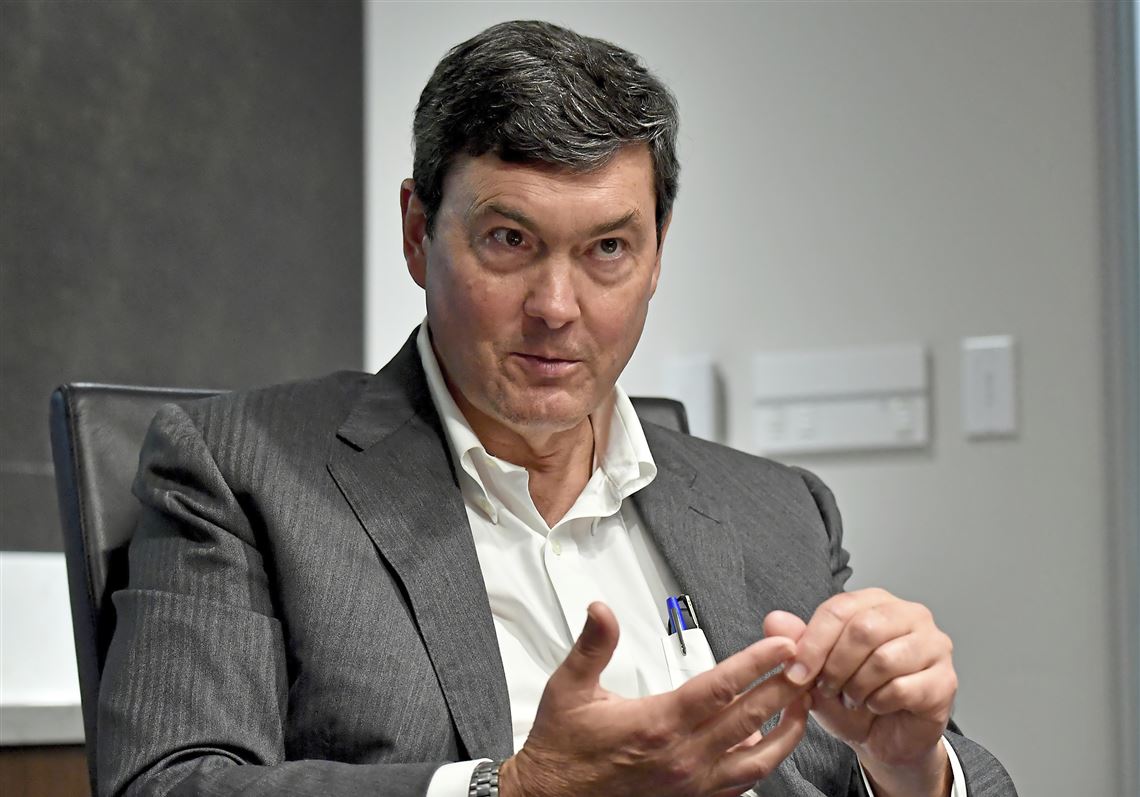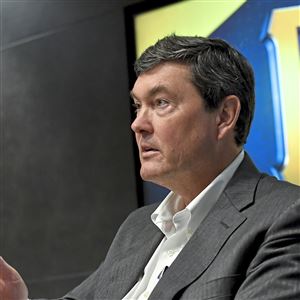It’s not that we're not spending enough, Bob Nutting seemed to say. It’s that we're not explaining our predicament well enough.
A new era is dawning for the Pirates, and on Monday, Nutting, the club’s chairman and principal owner, sat in a small glass-walled conference room on the second floor of PNC Park’s administrative offices to explain it. Earlier that morning, he had fired general manager Neal Huntington, a week after former president Frank Coonelly left the organization. Since Nutting became the principal owner in 2007 and hired Coonelly and Huntington, no one else has led baseball operations; but for one year of Jim Tracy and a three-year stint of John Russell that ended in 2010, manager Clint Hurdle, dismissed at the end of the season, had been at the helm.
To Nutting’s right was Travis Williams, the team’s new president. His immediate task is to hire a GM, after which the managerial search can resume. Nutting sympathized with fans: He, too, was frustrated watching Tyler Glasnow and Gerrit Cole reach new heights after leaving the Pirates. He, too, felt a change at manager and GM was necessary.
But when the subject turned to money, Nutting reverted to old tactics. He did not delve into specifics, and he invoked the Pirates’ plight as a small-market team.
Asked point-blank, why not spend more, he said, “I really believe that the fundamental narrative about the economics of the Pittsburgh Pirates and the economics of baseball have been misunderstood. The narrative is not accurate. We need to do a better job of explaining and telling the story of the uneven playing field in Major League Baseball.”
Fans won’t want to hear it, but he’s not wrong. According to the collective bargaining agreement’s calculation of revenue sharing market score, a formula that includes household income, population and homes with cable, the Pirates rank 27th in MLB. Their market score is 56, meaning they are 44 percent smaller than the average market.
The Boston Red Sox had the highest opening day payroll at $222 million. The Pirates ranked 28th at $77 million. Nutting said, as he has in the past, that the Pirates won’t use their market size as an excuse for their performance.
“However, we have to be realistic and we have to communicate more clearly and more directly what those economic challenges that we face are,” Nutting continued. “The idea that we are hoarding cash as a team is simply not accurate, and we will find a more compelling and complete way to make sure that that is an issue that simply is not on the table.”
Asked if fans might interpret a more compelling explanation of the team’s economic challenges as an excuse, Nutting said, “Which is one of the reasons we have not said it. We need to say it carefully. We need to do it effectively and well.”
The Pirates lost a million paying fans in a four-year period between 2015 and ’18, and some of their local revenue disappeared when the fans did. Their local revenue had increased as the team improved through the 2015 season, meaning that corresponding revenue-sharing receipts decreased. They still receive revenue sharing, though, and they also share in the money distributed from MLB’s national television contracts.
Williams also addressed the Pirates’ market size. Then he added a way to confront it. Remember that market score from earlier? The St. Louis Cardinals rank one spot ahead of the Pirates, the Milwaukee Brewers two spots behind. The Tampa Bay Rays have succeeded despite a small payroll, as have the Oakland Athletics.
“There are other marketplaces, other teams in other marketplaces like Pittsburgh, that are able to do it successfully on a sustained basis,” Williams said. “We will look at them, we will model ourselves after them, the good parts of what they were doing, whether that be through drafting, development — not only development through the system but at the major league level, as well.”
Money has been a third rail with the Pirates for a decade. Their franchise-record payroll, $99.9 million at the end of 2016, still ranked in the bottom third in MLB. When asked about payroll this spring, the previous time Nutting spoke to reporters, he said the team preferred to focus on things that were controllable. The front office might have turned over, but Nutting’s public statements on payroll remain the same.
The Pirates gained about 100 fans per game in attendance in 2019 and recently agreed to a new television rights deal with AT&T Sports. Asked how those developments would affect payroll, Nutting said, “I think those are all discussions we have to have as we go forward. I don’t have an answer right now.”
Bill Brink: bbrink@post-gazette.com and Twitter @BrinkPG.
First Published: October 28, 2019, 8:00 p.m.






















